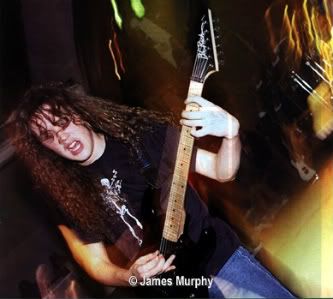

James Murphy is an American guitarist who is most well known for his stints in three of metal’s most influential bands, DEATH, TESTAMENT, and OBITUARY. Since then, he has become one of the most sought after producer/engineers in the underground world of heavy music, working with big names like DAATH and LAZARUS A.D., helping to continue shape the future of thrash and death metal with his ever increasing skills to get the best possible sound production for his artists.
The Metal Den’s Randy “Rocket” Cody recently conducted an interview with legendary Ex-DEATH guitarist James Murphy for his loyal army of Den Headz worldwide.
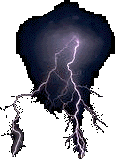
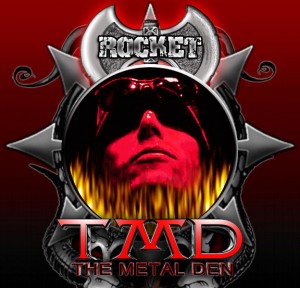
Rocket: Where were you born and raised?
James: I was born in Portsmouth, Virginia (USA), but I was raised in Central Florida. My family was from Florida, but my parents were in Virginia at the time of my birth because my father was in the US Navy at the time, and was stationed at the Norfolk Naval base there. I’ve lived all over though… even in Germany for 6 years when my father got stationed there.
Rocket: Do you come from a big family?
James: Big-“ish”… 6 Aunts and Uncles and several cousins and 3 siblings. Family get-togethers were always out of hand. By the mid-90’s though everyone had spread out quite a bit and drifted a bit apart, especially once all my grandparents had passed away.
Rocket: What first drew you to playing music?
James: At first probably my dad’s record collection and his nylon-string guitar which he very occasionally allowed me to “play”. After that I got my own record player at about age 8 and started getting Kiss, Queen, Aerosmith, and P-Funk records. In Junior High School I graduated up to Rush, Black Sabbath, and eventually Ozzy Osbourne with Randy Rhoads. I was always most attracted to the guitar on all those records, but vocals and drums also gripped my attention.
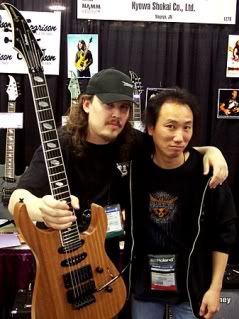
Rocket: When exactly did you first start playing the guitar?
James: Well, I wanted to play from about age 8, and to that end I asked/begged for a guitar at every birthday and Christmas for several years. My father was not about to come off with the cash for that though, ha ha… nor put up with the noise… so I was never given one. Eventually, while living in Germany, I took a summer job with the Dependant Youth Summer Employment Program offered to the teenaged children of servicemen by the US Military for two years in a row and saved the majority of the money I earned. At the end of the second summer I had enough and went into downtown Geissen, Germany and bought an Aria Pro II XX Deluxe Flying V guitar… black with a big yellow lightning bolt across the front. I was very proud of that guitar and I began learning right away. I was 16, so it was quite a late start by most standards, but I threw myself into it. To my advantage was the fact that I had spent so many hours over several years of my life listening intently to the guitar playing on the records I owned. So by the time I started learning I had internalized the sound and feel of so many aspects of playing… like chord structures, scale tonalities, solo phrasing and structure, and very importantly, vibrato… so thoroughly that it all came very easily to me once I was actually able to physically practice the mechanics of those things on an actual instrument.
Rocket: Did you ever take any formal guitar playing lessons?
James: In High School… in Frankfurt, Germany… I took what was called an “intermediate guitar” class that the school offered. It primarily consisted of learning to play simple melodies via sight-reading out of Mel Bay’s Guitar, Book One. So the course itself didn’t really do much for me, but all the other “guitar-heads” in the school also took the class, and thus I was exposed to many players that were much more advanced than me, and I learned a lot listening and watching them at first, and then by jamming with them and getting them to show me things. It was really more of a “club” than a class.
Rocket: Who are some of your biggest playing influences of past and present?
James: Well at first I had a pretty limited set of influences: Ace Frehley, Tony Iommi, Randy Rhoads, Angus Young, Ritchie Blackmore, Jimi Hendrix, etc. Then I got into the “shred” guys, like Paul Gilbert, Tony MacAlpine, Greg Howe, Vinnie Moore, Shawn Lane, etc. These days I still love all those players but I’m into so many different kinds of guitarists, as well as other instrumentalists, that any list would be too long to print. A few names that spring to mind though are Bill Connors, Allan Holdsworth, Al Di Meola, John Scofield, Steve Topping, Bill Frisell, Koichi Yabori, Pat Metheny, Steve Khan, Joe Bonamassa, Don Ross, Terje Rypdal, Oz Noy, John Surman, Jeff Kollman, Guthrie Govan, Brett Garsed, Nguyên Lê, Jan Garbarek, Steve Tibbets, Nils Landgren, Ralph Towner, Chris Poland, David Fiuczynski, Jimmy Herring, Frank Gambale, Scott Henderson, Susan Weinert, John McLaughlin, Mike Stern, John Goodsall, Don Mock, Alex Machacek…. See what I mean? The list gets long quick, and there’s many more before I’d consider it even close to comprehensive.
Rocket: Have you always been able to solo naturally on guitar? Or did you really have to work hard at getting good with that?
James: There was definitely work involved… but as I mentioned earlier, I feel I had a certain advantage from having spent so many years just listening intently to guitar playing on records. I had so many songs, solos and all, memorized in every nuance (but with no clue as to how to physically play them on the instrument), that it gave me an internalized instinct and understanding for guitar and music in general that was pure and uninhibited by trying to concurrently wrestle with the mechanics of actual playing. So, when I was finally able to actually learn those mechanics I already had a very clear concept of what the end result should sound like, and that served me very well, in that I never had the issue of technique getting in the way of the music… which is a problem you see quite often with young players. For me technique came last, so it was strictly a tool to get to the music in my head, and not an end unto itself.
Rocket: How did you get the gig with Death?
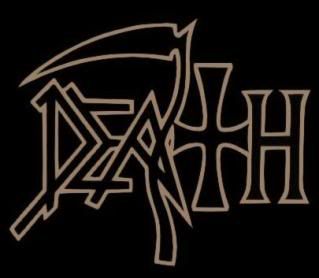
James: At the time I met Chuck I had already toured the year before with the Combat Records band Agent Steel in Europe and the UK. I showed up at a Death show in Tampa that was part of their touring cycle for the Leprosy album, and I walked past Chuck without realizing it in the parking lot. I happened to be wearing a shirt from that Agent Steel tour I had done and Chuck spotted it… turns out he was a fan and had the band’s albums. He commented “cool shirt, Agent Steel rules” as I was walking by and it sparked a conversation. I told him I was a huge fan and he learned of my experience as a touring musician, which he seemed very interested in, which in turn piqued my curiosity as to why he might be so focused on that. We were hanging out again after the show and I gave him my mother’s phone number, as I didn’t have one of my own, and told him to call and leave me a message if Rick ever quit. About 5 months later I had moved to Atlanta to try to get a job and enroll in the Atlanta Institute of Music. I did get a job, but couldn’t yet afford the tuition of the school so I was just hanging out, working a landscaping job, trying to figure out how to attend AIM and jamming with my roommate, who happened to be the guitarist of Hallows Eve.
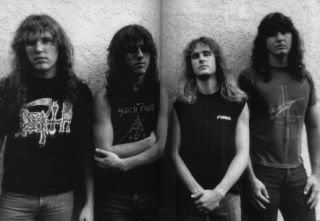
Out of the blue one day Chuck called my mother, who passed him my number in Atlanta… he called me up to offer me the now vacant guitar position in Death and believe it or not, I told him that I was flattered but that I really wanted to stay in Atlanta and attend the school. The next morning I woke up and thought to myself, “what the hell is wrong with me??”, and called Chuck back to tell him I had reconsidered and would be packing up and coming back to Florida to join. To my dismay though he informed me that since I had passed on the gig they had gone ahead and confirmed with another guitarist they had been considering. I was determined though and told him I’d come down anyway, meet with him, play some Death songs for him, and see if I couldn’t change his mind. He actually agreed to that, so I drove the 8 hours back to the Tampa area and met up with Chuck, Bill, and Terry at Terry’s parent’s house. I played along to some Death tracks from SBG and Leprosy with a boombox and chatted with them. They thanked me for my time and effort and I went back to Atlanta, still kicking myself for not accepting right away. Three days later though Chuck called again and said that the other guy wasn’t working out, and told me I had the gig if I wanted it. Needless to say I accepted immediately that time and began packing my things in my car.
Rocket: What was your very first impression of the late great Chuck Schuldiner as a person?

James: I liked him right away, we seemed to click and have quite a few things in common, especially regarding musical taste. He was very into early 80’s European metal bands, like Sortilege, H-Bomb, Demon Eyes, Tyson Dog, Heavy Load, Silver Mountain, Satan Jokers, etc… and I knew them all and owned the albums as well… so we bonded immediately on that front.
Rocket: In 1989, you recorded on Death’s third album entitled “Spiritual Healing”. What was that experience like for you?

James: It was the culmination of my lifelong dream to be honest… I was incredibly happy to be a part of it. To this day I’m very proud and fond of that recording. I had never even played on a demo before that… just the one Euro/UK tour I had done, that was my only “pro” experience prior to joining Death and getting to work on that album.
Rocket: What was your favorite Death song to perform live and why?
James: Probably Pull The Plug, simply because of the chorus. As soon as we’d hit that chorus the entire crowd would be chanting along “PULL THE PLUG!!!” Always loved that, it was a great feeling.
Rocket: You also played with Testament, recorded on 1994’s “Low”. What is your favorite personal moment from the time you were in that great metal band?
James: The entire process of making that album was a high point for me. I was in one of the best thrash bands in the world, recording one of their best ever albums… couldn’t have been happier. The only downside of the whole situation was that my girlfriend in Florida didn’t want to move to California, so it pretty much ended that relationship… but that never caused a hesitation, I had priorities! Playing on the 1999 album, The Gathering, with my buddy Steve Digiorgio and drumming legend Dave Lombardo was a high point as well, even though I was getting quite ill at the time, and some of the memories are sketchy.
Rocket: What kind of guitars are you currently playing live and in the studio?
James: I’ve been using Caparison guitars for several years now, and I love them. I have 3 of their Dellinger models and they are workhorses, the ones I use live. I also have two of their Angelus models that I use for rhythm tracking in the studio since they have fixed bridges. Last but not least I have one of their Horus models that I use for most of my studio soloing work. They are all beautiful, well-crafted guitars.
Rocket: What kind of amp rigs?
James: I have several different amps and cabs… I like them all for different things. My latest is a Fender EVH 5150 III, and it’s a stellar amp. My Peavey 6505+ and Framus Cobra heads are rhythm guitar beasts, and my Madison Divinity II provides a nice contrast to those other amps for solos, and I have it loaded with the optional Ruby Red tubes which make it even better for this. I also have a VHT Pitbull that’s a monster on rhythm tracks, but it’s down for service right now. My fave cab at the moment is my Mesa Std. V30-loaded 4×12.
Rocket: When did you first start to realize that you had a talent for being a producer?
James: Well, I first noticed an attraction to the engineering side of things while recording “Spiritual Healing” in 1989… just watching our engineer/producer Scott Burns work fascinated me as I’ve always been a “tech-head” with an affinity for good sound. It really cemented when he showed me how to auto-punch on the 2” machine and let me work on my solos by myself while he took a break.
From that point I began studying on my own and by 1993 when I joined Testament I had a fully formed plan as to how to put together a project studio… which I did shortly after finishing the “Low” sessions. I also contracted out to bigger studios as an assistant in order to better learn the craft from experienced engineers, and had the fortune to work under some of the best over a several year period.
Like most other producer/mixers would say though, my best work is my latest, and I feel I’m really just finally “arriving”, over the last 4-5 years… this last year most especially, in which I’ve done more big label productions/mixes than ever.
Rocket: Congrats on the success with Lazarus AD in 2009! You handled their killer debut “The Onslaught” via Metal Blade and let me say that the work you did is truly the best I’ve heard in the modern thrash era, and the scary thing is how young these guys are. Can you tell me a little about the recording process?
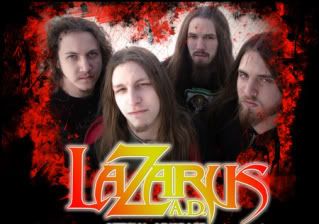
James: Well, the recording and production were handled in Wisconsin by Chris Djuricic, a good engineer whose work I’ve done a lot of mixing and mastering of. I mixed and mastered the Lazarus AD and thanks to Chris’ thoroughness in taking D.I. tracks of the guitars I was able to re-amp them with some of my best amp heads and really craft a killer, fitting guitar tone for the album. The mix itself was fun and came together nicely… definitely one of my favorite mixes I’ve done in the past few years.
Rocket: Who are some of the other bands you are working with?
James: I’ve also recently done albums, either in a production, mixing, or mastering capacity, or some combination thereof, for Abigail Williams on Candlelight, Success Will Write Apocalypse Across The Sky, Augury, and Swashbuckle on Nuclear Blast, Alestorm on Napalm, The Destro on Metal Blade, and Burning Human on E1 (formerly known as Koch Records).
Rocket: How do bands submit to hire you on as a producer?
James: The best route is to message me on my Production MySpace page: http://www.myspace.com/thesafehouseproductions , and either myself or management will respond… or just contact my manager directly by emailing to demetri@redrocketentertainment.com
Rocket: If you could produce any metal band in the world today, who would it be and why?
James: Oh there’s quite a few actually, but I’m hesitant to say… simply because I don’t want to offend the ones that produce themselves (almost always a bad move I think, to have no outside ear or expertise at all involved), and I don’t want to engender any bad feelings from the current producers of the others, most of whom are doing a great job, by the way. I’m sure most pros wouldn’t be bothered at all, but just in case I’ll keep that info close to my chest.
Rocket: With all the other great releases that have come out so far in 2009, what’s been your favorite metal album this year?
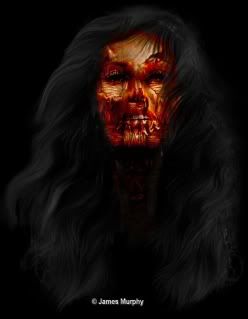
(Digital art by James Murphy)
James: I have several faves so far this year, though not all of them for their production/mix quality… I always pick my faves based on the music.. though of course some of these also have great production values and excellent mixes:
Septicflesh – “Communion”, Delain – “April Rain”, The Haunted – “Versus”, Absu – “Absu”, Chimaira – “The Infection”, Obscura – “Cosmogenesis”, In This Moment – “The Dream” ( a huge 180º for me, as I hated their last one), Zonaria – “The Cancer Empire”, Dream Theater – “Black Clouds & Silver Linings”, Suicide Silence – “No Time To Bleed”, Killswitch Engage – “Killswitch Engage”, Born Of Osiris – “A Higher Place”, Goatwhore – “Carving Out The Eyes Of God”, Job For A Cowboy – “Ruination”, Isis – “Wavering Radiant”….
I’m sure I’m forgetting several.
Rocket: What is your opinion of how ‘free downloading’ has drastically affected record sales in the 21st century?
James: No doubt it’s killing it… and the direct result you can see today is that budgets are getting smaller and record companies are cutting staff, cutting tour support, etc etc. Eventually, unless something happens to turn it around or to create a new model for purchasing music that isn’t rife with the temptation to abuse it, the record industry will collapse. I shake my head dumbfoundedly at those who think that this is “good thing” somehow… since 90% of the music all of us enjoy so much wouldn’t exist without labels to fund the recordings and promotion and tours… just wouldn’t happen for most bands that are making well produced albums and videos and such without the infrastructure provided by their labels.
That’s all I have to say about it, and I’m sure every person that illegally downloads will surely disagree strongly with me… and I’ve heard every argument from that camp. Unfortunately they are almost always dead wrong. Example… “well I don’t buy the album, but I go to the show and buy a t-shirt”. Well that’s definitely great, and necessary if you want your fave bands to be able to continue to tour, but concert ticket and merchandise sales don’t fund album budgets, and even with both those income sources combined 99% of the bands we all love just barely manage to pay for getting from one city to the next on that money, while hopefully managing to keep the apartment rent paid back home. There’s none left over for recording proper albums…. Album budgets are determined by previous album sales once a band has already released it’s debut… if in fact they’ve even sold enough to justify the label exercising their option to continue with a band.
The arguments go on and on, and they are all just as easily shot full of holes as that example, so I’ll let it rest there. I’m not passing judgment on anyone, it’s not my place to do that… but I’ll be there shaking my head every time someone I know that only acquires music by illegally downloading its favorite band, give up… because that’s where it’s headed, and indeed it’s already happening at lower levels.
I’m not totally hopeless on the subject though… I hold out hope that something comes to fruition that is a workable, secure, and fair way to monetize music usage in the coming years… before the collapse I referred to fully develops.
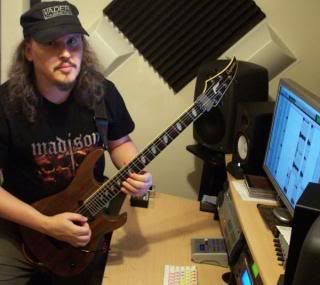
Rocket: What is your advice to some youngster picking up the guitar today for the first time with the rock n roll dream?
James: Practice, a lot… but also just get out and play… as often as you can, with whomever you can. Do it early, and do it often… this will build live confidence and experience, and season you as a live player. Always try to play with people that are better than you. Learn to really play with a drummer… preferably a good one. Also, I’d say have a back-up plan, but be willing to put everything on the line for your dream. Be able to work well with others, don’t be a prima donna. Support the system you are trying to be a part of by buying the CDs you enjoy and learn from. Learn as many songs by as many varied artists as you can… so you can practice with “a band” at home by playing along with those CDs… you’ll simultaneously be getting a well-rounded overview of songwriting, which will help you as you begin to write your own songs. Record yourself and listen back… and be critical. Seek out the advice and tuition of local players that are better than you, and even non-local players via the Internet. Buy DVD and Book/CD instructional materials and study them thoroughly. Practice learning music by ear. Be humble.
Rocket: Any other projects you are working on that you’d like to mention?
James: Right now I’m working on the World Under Blood debut for Nuclear Blast, and upcoming I have the production and mix of the next Epicurean CD for Metal Blade, and I also have the production/mix of the second Infernaeon album for Prosthetic Records coming up as well.
Rocket: If you didn’t have a career in music, what other profession do you think you may have ended up doing?
James: Hard to say, as I never considered anything else… which is odd considering my advice to “have a back-up plan” that I gave earlier. Probably something with computers and/or graphic arts. But honestly, I can’t imagine life without music as part of my career.
Rocket: Thanks very much for rocking this out with me. Best of luck with it all.
James: Thanks to you as well…. Take care.
http://www.msanthrope.com/jamesmurphy/

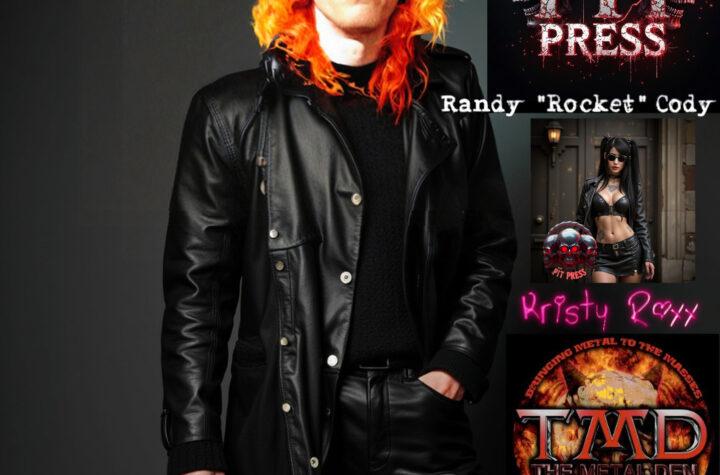

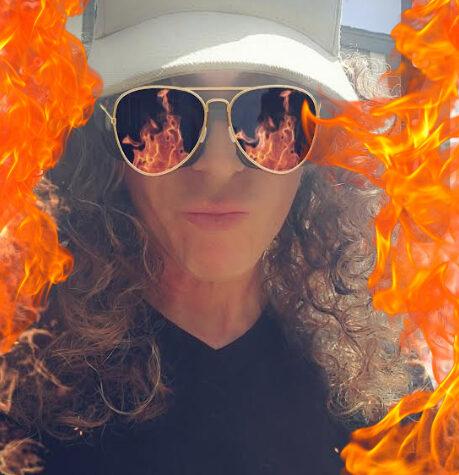
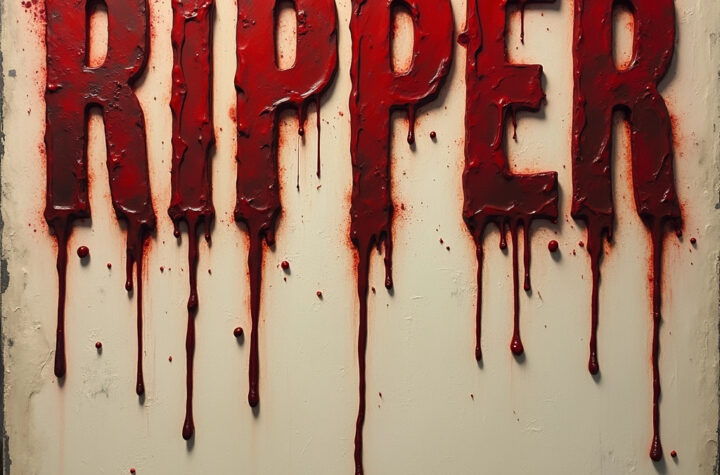
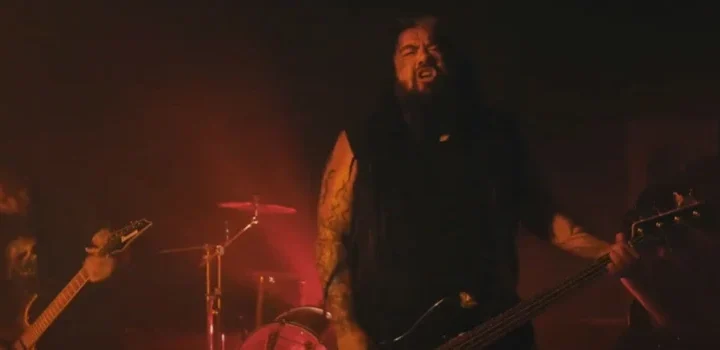
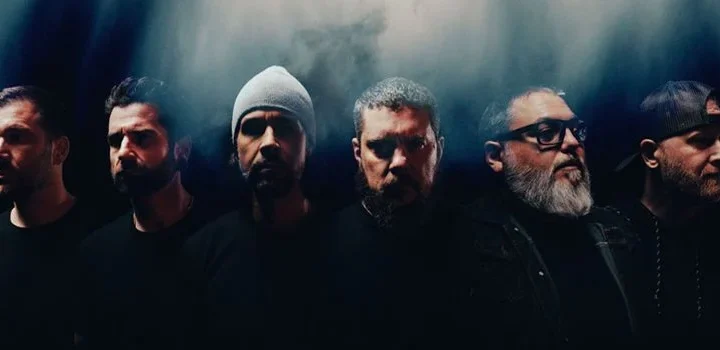
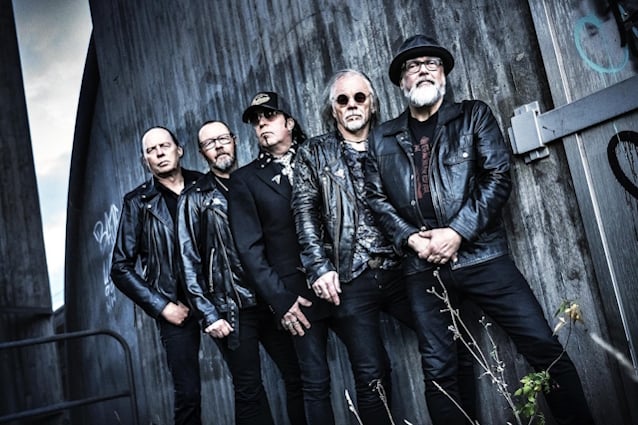
Great interview, great to see James doing well and being happy with his job/passion.
No questions about Death Tribute/Disincarnate album, but considering what James has to say about the music business, I think it’s not the right time.